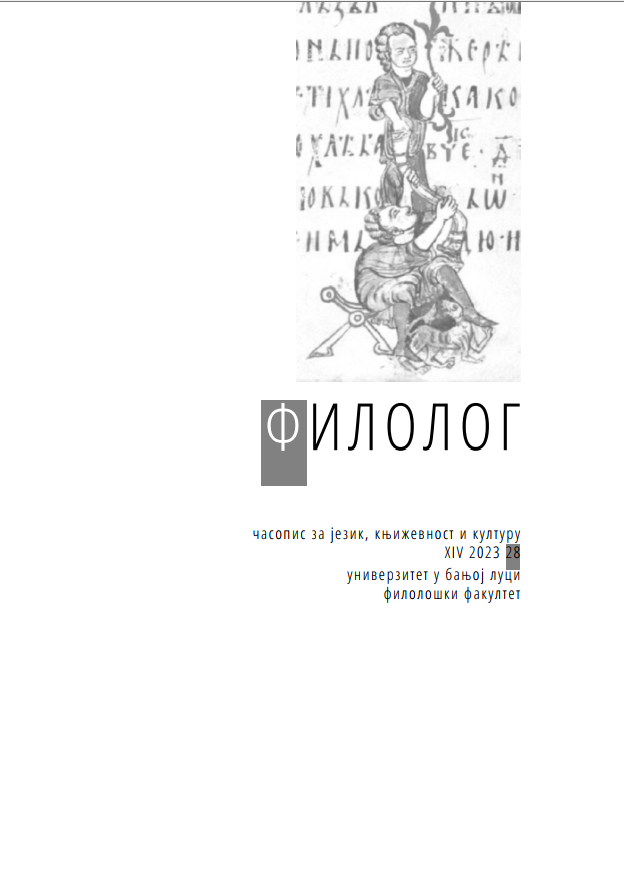ЛЕКСИЧЕСКОЕ ВАРЬИРОВАНИЕ В РЕЧИ
НОСИТЕЛЕЙ ЛИТЕРАТУРНОГО ЯЗЫКА НА ТЕРРИТОРИИ РЕСПУБЛИКИ СЕРБСКОЙ
LEXICAL VARIATION AMONG STANDARD LANGUAGE SPEAKERS IN REPUBLIC OF SRPSKA
Author(s): Ekaterina Yakushkina, Dijana M. CrnjakSubject(s): Lexis, South Slavic Languages, Philology
Published by: Филолошки факултет Универзитета у Бањој Луци
Keywords: Serbian language; lexical variability; lexical doublets;
Summary/Abstract: This paper is a part of a larger study of regional variation of the lexicon within the Serbian standard language. About 100 questionnaires were collected for this research from educated speakers of the Serbian language from different cities. The questionnaire contains questions which uncover the use of doublets characteristic of the western and eastern parts of the Serbian linguistic territory, such as željezo and gvožđe, mahune and boranija, kino and bioskop. The paper proposes the analysis of around 60 questionnaires from the Republic of Srpska, namely from Banja Luka (47), Trebinje (7), as well as from Prijedor, Bjelina and East Sarajevo. First, the paper presents a list of investigated regional doublets (200 lexemes), and gives their typological division (phonetic or morphological variants, lexical doublets).Further, a linguageographic analysis of the first questionnaire is proposed and previously analysed in the other paper, and conclusions about the regional characteristics of the lexicon contained in that questionnaire are presented. For example, it is noted that in Prijedor, unlike Trebinje, words as domaća zadaća, duda, hladetina, hlače, ispričnica, kuhar, kuhati, marelice, neodgojen, propuh, ručnik, tekućina, tržnica, tuka, umjetno gnojivo etc., are used.The main content of the paper deals with the analysis of the second questionnaire. For each lexical pair presented in the questionnaire, the statistics of the use of each word in Banja-Luka and Trebinje are given, and based on this, the lexicon characteristic of one and the other city is distinguished (e.g. dan i noć, trougao in Trebinje and maćuhice, trokut in Banja Luka), as well as a group of doublet pairs whose members are used equally often in the west and in the east of the Republic of Srpska (oprosti – izvini). Words which practically do not vary are also described. Sometimes the same word is used in Banja Luka and Trebinje, and sometimes it is the same as in Serbia (putarina), or it may be different (narandža instead of pomorandža).The main conclusion of the research is that the lexicon of the western and eastern type on the territory of the Republic of Srpska is distributed in the form of waves. This means that the use of lexical doublets in Trebinje is more similar to their use in Serbia, while for Banja Luka and Prijedor a higher concentration of western words than in Trebinje is typical.Further research will be focused on the description of the use of these lexemes in other cities of the Republic of Srpska, as well as their variation on the territory of Serbia.
Journal: Филолог – часопис за језик, књижевност и културу
- Issue Year: 14/2023
- Issue No: 28
- Page Range: 119-134
- Page Count: 16
- Language: Russian

